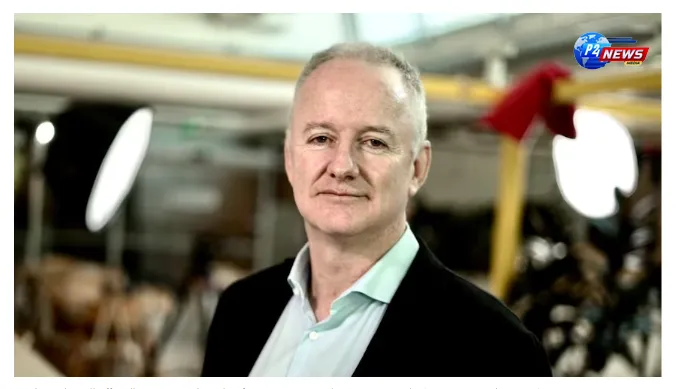Hugh Marks is set to officially take on the position of managing director at ABC starting in March, marking a significant leadership transition for the organization.
Hugh Marks is set to officially take on the position of managing director at ABC starting in March, marking a significant leadership transition for the organization.
Until just over two weeks ago, there was considerable uncertainty regarding who would succeed David Anderson as the managing director of the Australian Broadcasting Corporation. Typically, the media surrounding the ABC buzzes with speculation, listing numerous potential candidates, sometimes hinted at by those vying for the position themselves. This instance, however, saw a stark contrast with minimal speculation, and only one prominent name floated: Hugh John Marks.
Within the organization and the broader media landscape, discussions about the new managing director were noticeably subdued. The ABC board had successfully kept the leaks under control, resulting in a suspenseful silence until the official announcement. When it came, ABC chairman Kim Williams could hardly contain his excitement as he introduced Marks to the public as the board’s unanimous choice.
“Hugh was a stand-out candidate, not only due to his comprehensive experience across all areas of media but also for his impressive history of steering media organizations toward substantial audience engagement,” said Williams. “He is well-equipped to lead the ABC as we embark on a phase of renewal and investment.”
Marks's journey to this pivotal role in the media industry is quite unconventional. Unlike many of his peers, he did not begin as a journalist or come from a background in television advertising. Instead, his career commenced in law at the prestigious firm Mallesons. His entry into the media realm happened in 1995 when he secured a role as legal counsel at Nine, just at the age of 29, five years after completing his law degree.
Marks's legal experience proved to be merely a stepping stone, as he quickly transitioned within a couple of years to become the director of film and television at Nine, leveraging new tools to analyze audience metrics and viewing preferences. After spending eight years at Nine, he made a move to Southern Star, a production company that was at the forefront of reality television, including shows like Big Brother.
Interestingly, although their paths never crossed during that period, Marks and current chairman Kim Williams shared a similar career trajectory, with Williams having previously managed Southern Star as he shifted from the music industry to film.
Marks returned to Nine nearly a decade later, this time stepping into a board position rather than management. He found himself in the right place at a crucial time when David Gyngell vacated the chief executive role in 2015. Marks was a natural selection for the position as traditional media, encompassing both print and broadcast sectors, faced challenges from the rise of digital giants that offered more sophisticated advertising targeting.
During his tenure at Nine, Marks was confronted with significant issues, including gender pay disparities. He faced public scrutiny when prominent host Lisa Wilkinson demanded equal pay with her co-anchor Karl Stefanovic, a matter that remained unresolved. Furthermore, he made the controversial decision to drop cricket broadcasting in favor of tennis—a choice that would have displeased the legendary Kerry Packer, but was deemed financially essential.
Nevertheless, the turbulent waters continued, marked by a decline in Nine’s share price. From an initial listing price of $2 in 2013, by 2016, it had plummeted significantly. Marks worked diligently to rebuild the company’s finances, amidst a backdrop of declining advertising revenue as competition from digital platforms intensified.
The pivotal merger between Nine Entertainment and Fairfax Media in 2018 marked a turning point for both struggling entities, establishing a robust $4 billion multi-platform media conglomerate. In this capacity, Marks also secured control over Fairfax’s partially owned Macquarie radio network, expanding the company’s reach into various media formats, including streaming services like Stan and a major stake in Domain.
However, his aspirations faced setbacks during the pandemic in 2020, coupled with personal controversies that eventually led to his resignation in 2021. Upon exiting, Marks left Nine in a solid position, riding on a wave of improved stock performance, valued at over $5 billion amidst a booming market.
In the years following his departure from Nine, Marks returned to content production, launching the studio Dreamchaser with fellow executive Carl Fennessey. Yet, when the opportunity to return to mainstream media at the ABC arose, he embraced it with alacrity. Though this new position comes with a reduced salary compared to his past roles, it presents challenges that he meets with enthusiasm.
“It’s a remarkable era for working in media,” Marks remarked. “We have a wealth of opportunities to provide quality news and entertainment for Australians. However, we must be judicious in our choices regarding priorities, as making the right decisions will dictate our success moving forward.”
Like
Dislike
Love
Angry
Sad
Funny
Pray
'Trump Tracker: Tulsi Gabbard's Surprising Appointment as US Intelligence Chief
November 14, 20249th Ayurveda Day in Melbourne: A Celebration of Ayurvedic Innovations and Global Health Impact
November 10, 2024🍪 We Value Your Privacy and Experience Hi there! We use cookies to enhance your browsing experience, provide personalized content, and analyze site traffic. By continuing to use our site, you consent to our use of cookies.







Comments 0